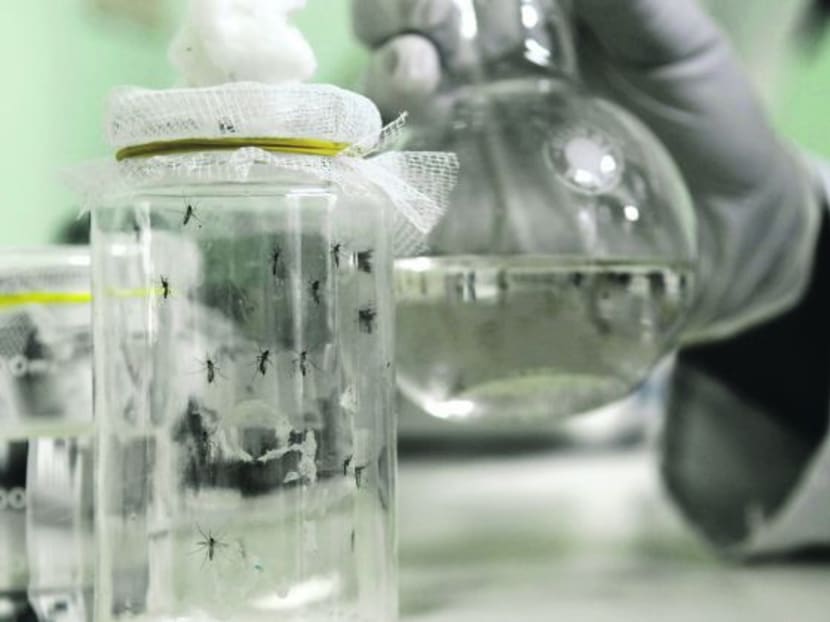Duke-NUS researchers shed more light on how dengue gets its bite
SINGAPORE — The researchers from the Program in Emerging Infectious Diseases (EID) have discovered a new way by which dengue virus-2 (DENV-2) evades the human defence system, according to Duke-National University of Singapore (NUS).

Aedes aegypti mosquitoes. Photo: Reuters
SINGAPORE — The researchers from the Program in Emerging Infectious Diseases (EID) have discovered a new way by which dengue virus-2 (DENV-2) evades the human defence system, according to Duke-National University of Singapore (NUS).
In a statement today (July 16), the local graduate medical school said when a virus enters the body and infects cells, it induces the production and release of interferons (IFNs), which are proteins that raise the body’s anti-viral defence mechanism.
However, DENV-2 would enter the cell and produce large quantities of non-coding, highly structured viral RNA and these would attach itself to cell proteins that typically help in producing anti-viral proteins in response to the IFNs. Because of this, the cell is unable to mount its anti-viral defences and protect itself against virus replication, the statement said.
In other words, DENV-2 produces fragments of its own genome to act like a sponge to soak up the factors needed to produce the virus-killing machinery, added Associate Professor Eng Eong Ooi, Deputy Director of EID.
Senior author of the report, Professor Mariano Garcia-Blanco from EID, said the findings were “surprising” because in 30 years of RNA and dengue-related research, this evasive mechanism was never discovered.
“We not only found a new way in which the dengue virus interferes with the host response, we also uncovered the first mechanistic insight into how this non-coding RNA works. This discovery opens the door to explore therapeutics through this channel,” Prof Garcia-Blanco said.
The study was first published by medical journal PLOS Pathogens online on July 3, 2014, and is supported by the Ministry of Health’s National Medical Research Council under its Individual Research Grant, the statement added. CHANNEL NEWSASIA





